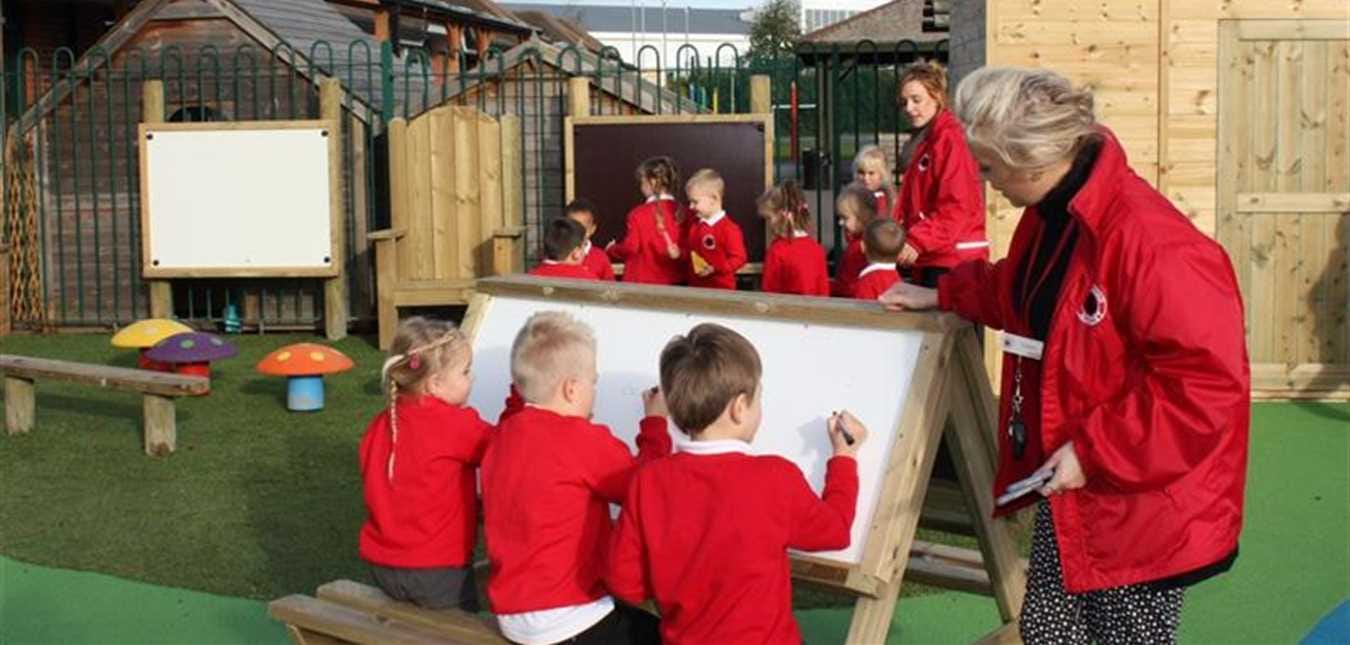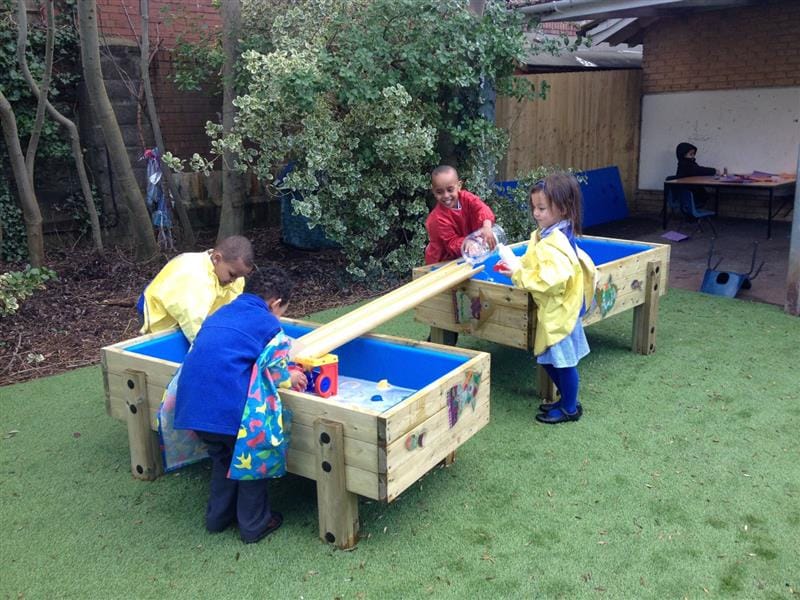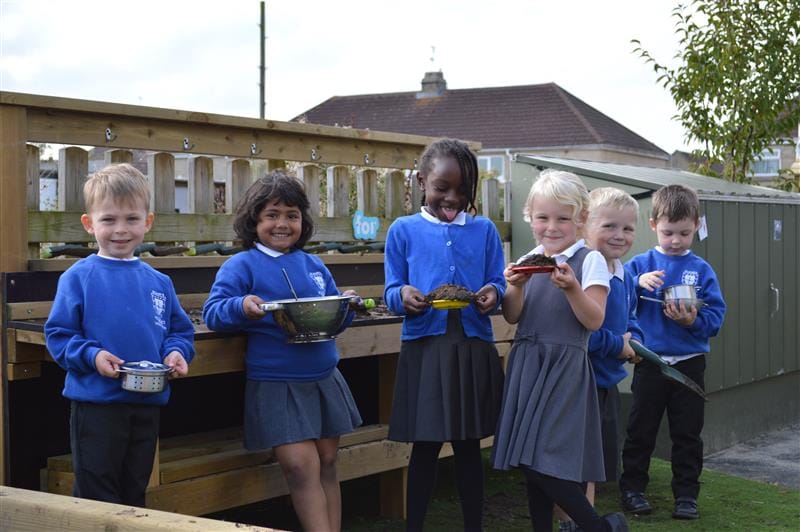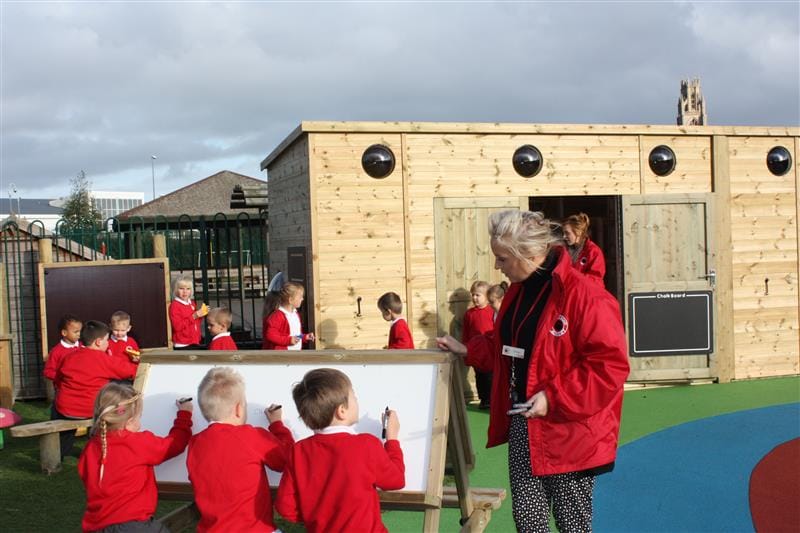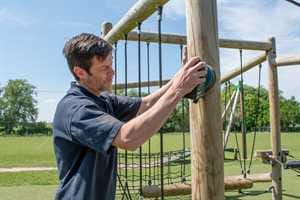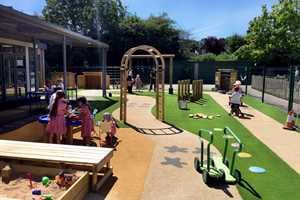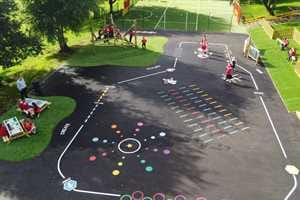
Playground Design
We explore why bullying happens and ways to minimise it happening on your school playground
Why Does Bullying Happen?
There is no direct reason to why bullying occurs or no direct answer as to why someone may be targeted.
Bullying incidents usually take place during playtime. They either use this time to release energy, catch up with friends or relax and take a rest.
Although bullying happens, there are still thing you can do to your playground to help minimise it.
We believe bullying happens because:
- Children are bored and looking for something new and exciting to do.
- Children like to feel like they are a part of a group/team and for this reason, they will bully or tease those that are different from them, or a part of a different group.
- The playground is hard to supervise (there may be hidden spaces), making it easier for children to misbehave.
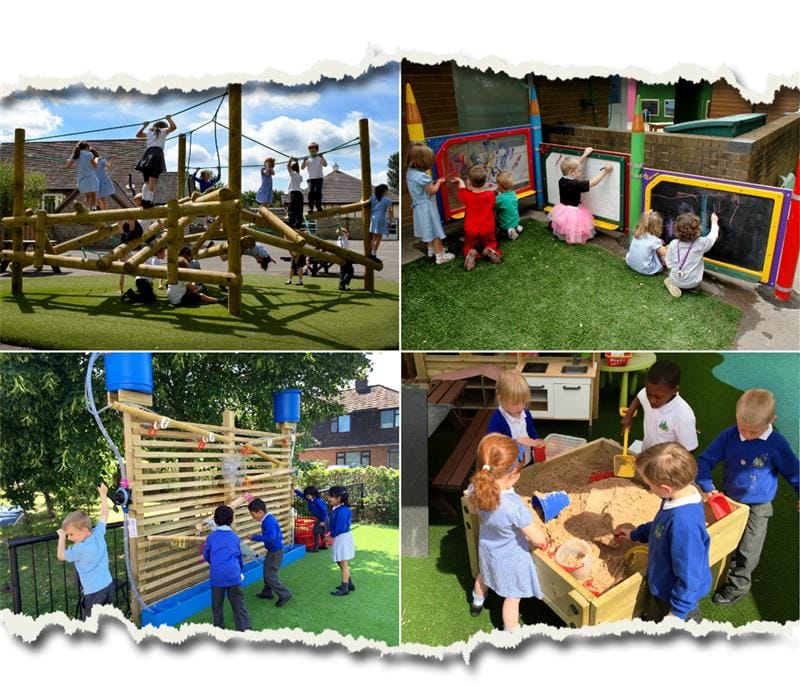
Making sure that every child gets the same opportunities and feels equal, is extremely important for maintaining a healthy engagement and development throughout each school day.
Children need an environment where they feel comfortable to mix and communicate with each other.
Bullying on the playground can have many effects on the victims both on the playground and during lesson times. For example, children may begin to lose focus during lesson activities, leading to reduced academic results.
The victim’s confidence to share ideas and creativity both indoors and outside on the playground, can suffer significantly. Due to this lack of confidence, they may also find it hard to trust others and form friendships in the future.
With over 18 years of experience in the playground industry, we know exactly how to design and create a playground that will help to minimise bullying during the school day.
Begin to develop children during early year’s foundation stage.
It’s important to start at early years because children can learn the importance of working together and learn the following from a young age:
- To respect others.
- Understand the importance of sharing ideas, thoughts and feelings while completing a successful group activity.
- Take turns in sharing roles and resources.
- Learn to build self-confidence.
- Develop an understanding of other children’s emotions and reactions to playground situations.
- To adopt healthy competition with others.
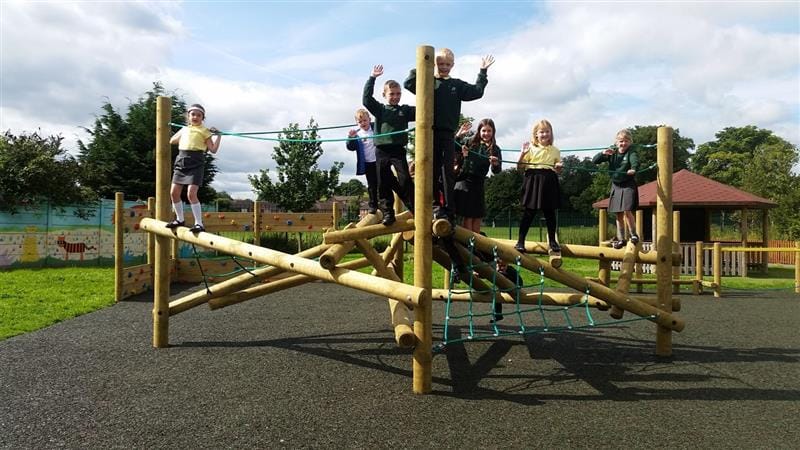
Ways this can be achieved during early years...
Children like to feel like they are a part of a group, and may tease or bully those that are not part of theirs.
Therefore, it is important to integrate children and get them to work with different individuals in all types of activities to try and develop relationships between all children.
Messy Play resources are always a favourite with children. It exposes them to the different textural experiences that water, sand and mud exhibit.
Gather children for some water play activities
A Water Table is one example as it brings children together to problem solve and take part in activities.
With more than one Water Table in the same environment, you could set tasks such as transferring water from one table to another. It will naturally encourage teamwork as the children take it in turns to fill, pour and transfer the water across. A great way to build communication and a sense of unity within the classroom.
The water will also bring a calming effect to the atmosphere to ensure each child feels relaxed in the presence of others.
Adding to this, there are many imaginative themed play possibilities that children can enjoy taking part in together. Everyone grab a ship… let’s conquer the mighty sea together!
Muddy activities that help build a strong team
A Mud Kitchen is a fantastic resource because there are no boundaries to what fun activities a child can imagine or create.
Children can easily connect and play confidently within a Mud Kitchen because any creative idea can be put into practice.
Give the children a task of putting on a special 5 course meal for a school TV Show, (or however many children there are). Each child will then get the opportunity to create and present their own muddy treat which will help to build self-confidence and appreciation for others.
Confident children are normally more dominant and naturally take lead roles during play. It is vital to show your children the importance of team work as well as turn taking to give everyone a fair opportunity with different learning experiences.
Allocate each child a specific short burst role around the kitchen. Then each child must switch to a different role every 5 minutes. This creates a fun team game and ensures each child has a go at every task that was set.
Every mud pie or cake created will have been an overall team effort and the children would have had fun making it together.
Take a look at some excellent messy play equipment for your school here.
The importance of playground supervision
One problem that occurs for teaching staff during break times is that it can be difficult to supervise the entire playground due to hidden areas.
It may be difficult, but getting as many staff out as possible interacting with the children will help provide supervision for all children.
Providing a staff member with authority, will offer someone for children to speak to as well someone that can offer some inspiration for fun group playground activities.
The importance of playground zoning
Creating specific zoned play spaces that target different learning challenges, is one of the best ways to help minimise bullying.
The ideal playground should include the following zones:
- Physical climbing/active.
- Quiet reading/reflection.
- Drama or performance.
- Imaginative play.
- Science/gardening.
- Loose play.
- Small games area.
Zoned play helps teachers supervise play times. It also means there will no longer be a mad rush of children across the entire playground.
A schedule can also be put in place to help teachers passively manage playtimes because different groups/classes can enjoy playing in specific zones at different times.
This helps supervise specific children in each area and makes it easier to spot and target any issues that may arise. Then either swap the groups around or create activities to engage the entire group during playtimes.
Zoning should also provide each child with at least one space that they look forward to playing in during playtime. From this, children can then combine their enjoyment for their favourite area with others, building relationships and confidence to express and share what they have been learning.
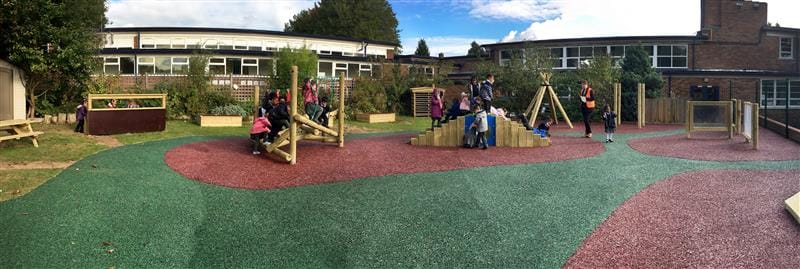
Teachers have a big role to play
Teachers will be able to build the confidence of the children and fill them with ideas and inspiration to for outdoor activities during break time. It’s always good to encourage ideas before children head outside.
Then it’s also important to take the children outside for some targeted outdoor teaching, for example:
- Quiet reading.
- Den making (secret dens, MI5 base, castle)
- Small group messy play – (treasure hunts, integrating volumes of water in containers, Creative Wall Activities)
Adding new playground equipment or developing areas to have specific learning and play zones, can become a long-term investment, but to help, teachers should build evidence:
Currently our school’s accident book has X number of entries each week and our school’s average attendance is X%.
Pentagon Play’s customer evidence
All the evidence from our customers, shows that a better playground reduces accidents, improves attendance AND reduces bullying!
Along with the fantastic amount of experience our teams have in education, we have a huge range of outdoor playground resources that target group play which if used correctly, can stop children being targeted for bullying.
We have many outdoor resources that are fantastic for bringing groups of children together in both play and work to help build relationships, break down barriers and overall, create a better classroom and school environment.
If you’re interested to find out more about how we can help develop your playground to minimise bullying and help bring children together, simply Contact Us through the website.
